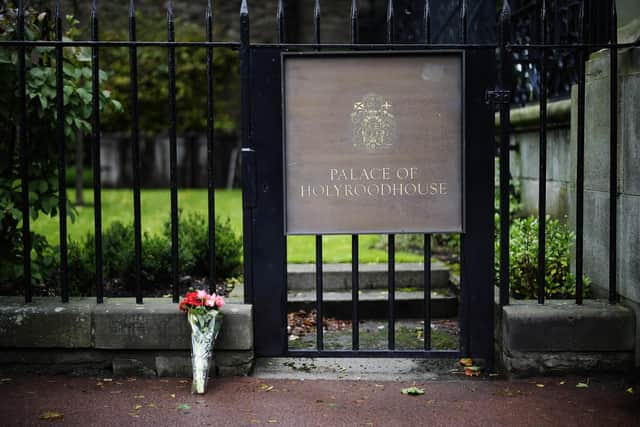Queen's death: Why the outpouring of grief is more than appropriate as constitutional question lingers
She was too constant a presence in all our lives - monarch for longer than most of the population has been alive - for a vast number of people, both at home and around the world, not to feel a deep sadness.
In Britain, we share a sense of something, and someone, deeply important to our national life having been lost.
Advertisement
Hide AdAdvertisement
Hide AdRespected by young and old, the Queen was instantly recognisable even to young children. But she also offered a human connection to a previous age, to the post-war world in which she ascended to the throne, to the eras that followed.


It was always inevitable that millions would feel a deep pang of dread when they heard the news, even if they had never met the Queen, even if they were not a particularly ardent Royalist.
Yesterday saw the crowds, and floral tributes, start to appear in Balmoral, Edinburgh, Windsor and London. Flowers were left at war memorials across the country. Sporting fixtures and other public events were cancelled.
I'd expect that today, when more people have the opportunity, the crowds – and the flowers – will multiply.
There will always be a cry, from some, that this is over the top, far more attention than it is worth. With respect, I disagree. The high regard in which the Queen was held, and the length of her reign, make this period of mourning appropriate.
Moreover, we will come to understand the Queen's death, and the accession to the throne of her son Charles, spells the end of one long era, and the start of another – quite uncertain – one.
The underlying questions – of the UK's constitutional future, of the environment, of the way we are governed – are ones The Scotsman will return to in the days and months ahead. But for the moment, we join our readers in mourning the death of Queen Elizabeth II, and remembering her extraordinary legacy.
Comments
Want to join the conversation? Please or to comment on this article.